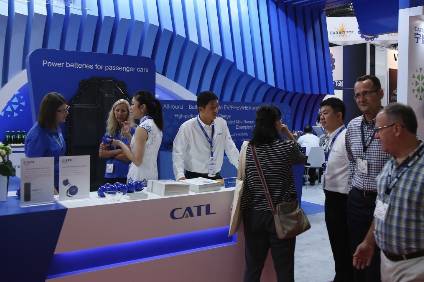
Chinese battery maker CATL reportedly said on Thursday it had developed new materials for lithium ion batteries which would sharply improve charging efficiency for electric vehicles, especially in extreme cold.
According to Reuters, Wu Kai, CATL’s chief scientist, told a forum in Shanghai that the company had developed new electrolyte materials which could sharply improve the charging efficiency of current lithium ion battery designs.

Discover B2B Marketing That Performs
Combine business intelligence and editorial excellence to reach engaged professionals across 36 leading media platforms.
Wu did not detail how CATL had been able to achieve the improved battery performance he described, the report noted.
He said the new electrolyte could deliver a 50% increase in efficiency in extreme cold at minus 20 degrees Celsius and 43% under more normal temperatures.
He added CATL would be able to mass produce a battery capable of delivering 400km of driving range with a 10 minute charge this year.
The company aims to shorten that charge time to five to seven minutes for the same driving range as its next target, he added.
Wu said he was sceptical solid state batteries were ready for mass production and of the cost reduction claims, Reuters added.
“What I am sure of is no one is capable of mass producing solid state batteries in the industry currently,” Wu said in response to a question.
“They claim to be able to halve the costs which is very exciting and would be very disruptive but I wonder what base they are comparing.”






